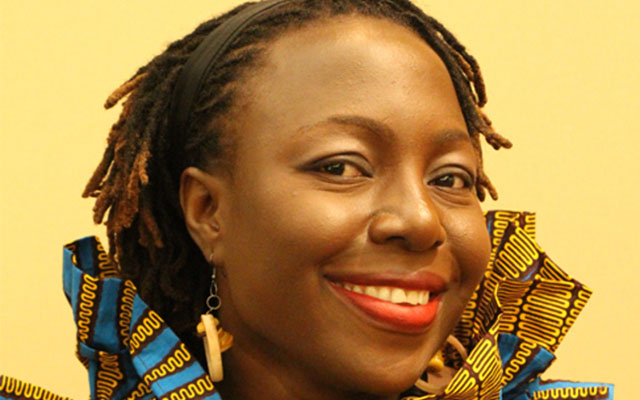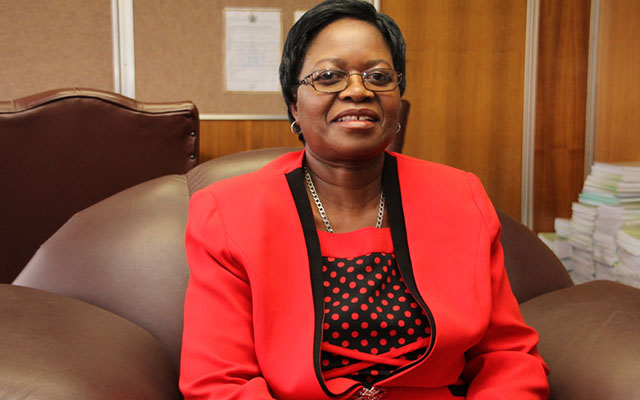Renewed fight to keep children in school

The Government was implored to ensure that children are legally insulated against being sent away from school
Leroy Dzenga Features Writer
A conglomeration of local civil society and religious organisations are engaging the Ministry of Primary and Secondary Education (MOPSE) in a bid to promote equality in education.
Their hope is that MOPSE can revisit issues affecting many learners in Zimbabwe, mainly primary learners who were forced to drop out of school. Through the newly launched campaign called “Every Child in School”, the Government is being implored to ensure that every child is back in school by the beginning of next term.
A petition has been sent to the MOPSE, requesting that all children out of school should be registered and be part of the forthcoming school calendar, early 2018. The Ministry says it is already implementing what the petition seeks as part of its lon-standing policies.
“The campaign is calling on the Government of Zimbabwe to urgently restore the legacy of education in Zimbabwe by allowing the hundreds of thousands of marginalised children who are out of primary school to go back to school,” read part of the petition. The petition went on to ask the education ministry to respond to the matter with urgency.
“We are asking the Minister of Education to release a circular to this effect immediately so that those children who are out of primary school because they could not pay the required school fees can be given places in public schools and not be discriminated against, because they cannot pay (sic),” the petition stated. Nyaradzo Mashayamombe, executive director of Tag A Life Foundation International Trust, which is part of the collective that came up with the petition, said the Government has an obligation to ensure that every child gets basic education.
“(The) Zimbabwe Constitution in section 75(a), stipulates that the State must take all practical measures to promote a basic-state funded and compulsory education for children. It is non-negotiable, all children have to be in school,” Mashayamamombe said. Mashayamombe, whose organisation works to empower women across the country said, their community engagement efforts alerted them to the worrying number of children who are out of school.
“Most of the adults in Zimbabwe right now benefited from a functional education system. This is why Zimbabwe is revered as educated across the globe, which is why we have an obligation to help revive the education system,” Mashayamombe said. “To finance the resuscitation of our education system through ensuring that every child gets basic education, I suggest that the Government introduces 1,5 percent levy from every working citizen so we can revive this country’s education.”
If the Government goes along with the idea, the ECIZ campaign prescribes that the money should not be used to pay teachers but be directed to infrastructural development in local education. Reverend Taylor Nyanhete, National Director at Zimbabwe National Council for the Welfare of Children (ZNCWC) said the ministry should release a circular confirming the contents of their petition.
“The MOPSE should immediately send a circular informing its schools to admit all children who have not been in school. It is the state’s obligation to ensure that children of school-going age are in school,” said Nyanhete. Although the budgetary allocation for education was applauded, there is a feeling that more can be done.
“The recent budget had a decent allocation to education, but we believe more can be done. When a nation educates its children, it is an investment for the future,” Nyanhete said.
“According to the 2016 ZimVac report, there are about 149 800 vulnerable children. These statistics are there for the Government to plan ahead to see how they can ensure that these children stay in school,” he said. There is the Basic Education Assistance Module (BEAM), which is meant to help young learners stay in school, however, it seems like the idea may need rejuvenation.
“BEAM was created by the Government to ensure that vulnerable children stay in school. But the idea was underfunded. It has had to rely on non-governmental organisation (NGO) funding, which is cyclical in nature,” Nyanhete commented on BEAM. The Government may need to revisit the idea and employ strategies, which will see it being self-sustaining. Justice For Children Trust’s Programmes coordinator Chinga Govhati, said there is an array of barriers which are contributing to the number of children out of school.
“Socio-economic barriers keeping children out of school include affordability by parents and non-availability of enabling documents such as birth certificates,” Govhati said.
The Government was implored to ensure that children are legally insulated against being sent away from school. “Schools are also urged to be aware that it is illegal to withhold results of public exams for non-payment of school fees as the contract is between the school and the parent and not the child. Punishing a child for not affording fees is unconstitutional,” said Govhati.
The Constitution provides for state assisted primary education to children, which has been the backbone for the petition. The Ministry of Primary and Secondary education says the petition is requesting them to perform duties they are already executing. Minister of Primary and Secondary Education Professor Paul Mavima, said they are compliant with the Constitution regarding child enrolment in schools.
“The contents of the petition are what we already do in accordance with the Constitution. We are also on a mop-up campaign through our non-formal education programme to get every child who may have dropped out of school back into school,” the newly appointed minister said. Prof Mavima said the prescriptions being preferred by the ECIS collective are similar to the efforts they have been putting in that area.
“There is nothing that they are not advocating for that the ministry has not been doing,” Prof Mavima said. Prof Mavima added, “The petition also fails to realise that public money to support education has to come from Zimbabweans one way or the other. Either we increase taxes or levies. Their petition does not acknowledge this simple fact. Without that acknowledgement, their true motive becomes suspect.” The ministry said it is open to engagement with stakeholders in improving local education.
“We would welcome serious dialogue, but we detest attention seekers who fail to fully appreciate what Government is doing,” said Mavima. Ordinarily, the Basic Education Assistance Module is supposed to help vulnerable children stay in school, but it has not been satisfying its purpose. This is due to the slow disbursement of funding by the Ministry of Public Service, Labour and Social Welfare, which leaves schools with a heavy load. The lobbying collective, like most Zimbabweans are hanging their hope on the new dispensation which the country has entered.
Organisations involved include Higherlife Foundation, Katswe Sisterhood, Education Coalition of Zimbabwe, Justice For Children’s Trust, World Vision Zimbabwe among others. With the same optimism, there is the belief that some children who were out of school due to financial hurdles will find their way back to the classroom.
- Feedback: [email protected].









Comments